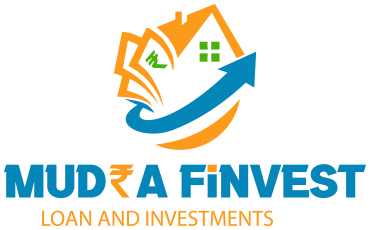A personal loan is a type of unsecured loan that individuals can avail of to meet various financial needs, such as medical expenses, wedding costs, home renovation, travel, or even debt consolidation. Since it is an unsecured loan, it does not require collateral or security, making it a popular choice among borrowers. However, personal loans come with specific eligibility criteria that applicants must fulfill to qualify.
Key Features of Personal Loans
- Unsecured Nature: No collateral is required.
- Flexible Usage: Funds can be used for any purpose.
- Quick Disbursal: Approval and disbursal are typically faster compared to other types of loans.
- Fixed Tenure: Loan repayment is spread over a fixed period, usually ranging from 12 to 60 months.
Interest Rates: Interest rates are generally higher compared to secured loans, as lenders bear more risk.

Eligibility Criteria for Personal Loans
Eligibility for personal loans varies across lenders, but the common factors include:
- Age: Most lenders require applicants to be within the age range of 21 to 60 years. For salaried individuals, the age limit might be narrower.
- Income:
- Salaried Individuals: A minimum monthly income is typically required, preferably 25000+ , which varies depending on the lender and location (e.g., urban vs. rural).
- Self-Employed Individuals: Proof of stable income, supported by business financials, is usually necessary.
- Credit Score:
- A good credit score (typically 670 and above) increases the chances of loan approval. It demonstrates the applicant’s creditworthiness.
- Employment Status:
- Salaried Applicants: Most lenders prefer individuals employed with reputed organizations for a minimum period, usually 6 to 12 months.
- Self-Employed Applicants: A steady business operation for at least 2-3 years is often required.
- Debt-to-Income Ratio: Lenders assess the ratio of your existing debts to your income to determine your repayment capacity.
- Residency: Applicants are typically required to be residents of the country where the loan is being availed.
Documents Required for Personal Loan Application
The documentation process is generally straightforward. Here is a list of commonly required documents:
- Identity Proof: Passport, Aadhar card, PAN card, or driver’s license.
- Address Proof: Utility bills, rent agreement, or voter ID.
- Income Proof:
- Salaried Individuals: Recent salary slips, bank statements, or Form 16.
- Self-Employed Individuals: Income tax returns, business financials, or bank statements.
- Photographs: Passport-sized photographs.
- Employment Proof: Offer letter or employment certificate for salaried applicants.
Tips to Improve Personal Loan Eligibility
- Maintain a Good Credit Score: Timely repayment of existing loans and credit card bills positively impact your credit score.
- Reduce Existing Debt: Lowering your debt-to-income ratio increases your eligibility.
- Provide Accurate Information: Ensure all details in your application are accurate and match the supporting documents.
- Opt for a Joint Loan: Adding a co-applicant with a good credit score can improve your eligibility.
Conclusion
A personal loan can be a reliable financial solution for meeting various needs, provided you meet the eligibility criteria. Before applying, it is essential to compare interest rates, processing fees, and other terms offered by different lenders. This ensures you select the most suitable option for your financial situation. Always borrow responsibly and ensure timely repayments to maintain your credit health.

